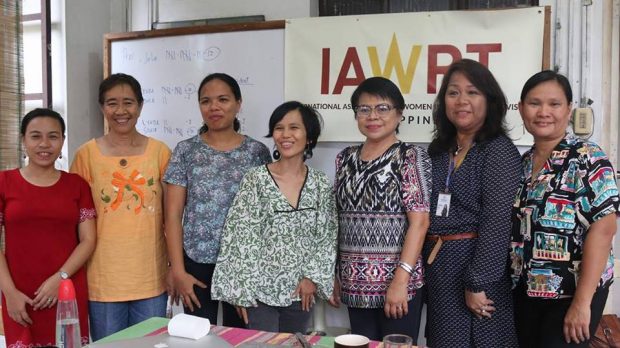Lawyer’s remarks on Noynoy shocks KBP, group prepares disbarment charge
The association of broadcasters in the Philippines strongly condemned a lawyer for his remarks regarding the death of former President Benigno Aquino III last Thursday, June 24.
In a statement, the Kapisanan ng mga Broadkaster ng Pilipinas (KBP) said Atty. Larry Gadon, a fanatical supporter of President Rodrigo Duterte, showed “blatant disrespect for the dead” and that his “shocking behavior is contrary to civilized conduct.”
“[Gadon] violated the standards of responsible broadcasting and therefore must be strongly condemned,” the KBP said.
One of several hosts of the DWIZ-AM morning show “Karambola”, Gadon rejoiced upon learning of Aquino’s death.
“May nagbalita sa akin na ito raw putang*** Noynoy Aquino ay patay na! Patay na raw ang putang***!” Gadon exclaimed. (Someone told me that this son of a bitch Noynoy Aquino is dead! This son of a bitch is reportedly dead!)
Not content with his first string of expletives, Gadon went on to heap more against the late President: “Eh sana namatay na nga ang putang***…Patay na ang putang****! Yehey!” (How I wish this son of a bitch has died! The son of a bitch is dead! Yipee!)
The controversial lawyer also alleged that Aquino died due to HIV (human immunodeficiency virus) which prevented him from recovering from his other illnesses.
“May HIV siya (PNoy) kaya hindi na gumaling,” he said. (Aquino had HIV, that was why he did not recover.)
KBP said it is sad about the incident, adding that had DWIZ remained to be its member, the station would have been quickly taken to task and disciplinary action imposed.
More condemnations
The Commission on Human Rights (CHR) also condemned Gadon’s allegations of the late President being afflicted with HIV.
In a statement, CHR spokesperson Jacqueline Ann de Guia said her fellow lawyer violated several provisions of the Philippine HIV and AIDS Policy Act or Republic Act No. 11166.
The law says it is unlawful to disclose, without written consent, information that a person has AIDS, has undergone HIV-related test, has HIV infection or HIV-related illnesses, or has been exposed to HIV.
The prohibition applies even to broadcasters and other media workers, de Guia, citing the same provision, said.
“We trust that necessary actions are also being undertaken to avoid similar incidents from happening,” she added.
Red Whistle, a support group for people living with HIV and AIDS, also said it will file criminal and disbarment charges against Gadon for “maliciously imputing that…Aquino III had HIV.”
The group also said that Gadon also violated Rule 1.01 of the Code of Professional Responsibility that says lawyers “shall not engage in unlawful, dishonest, immoral or deceitful conduct.”
“Statements laced with malice like the one made by Atty. Gadon fuel HIV-related stigma and discrimination and offer no help in addressing the HIV epidemic in the country, which has the fastest rising number of new infections in the world,” Red Whistle said.
‘Guest host’
The radio station swiftly apologized to the Aquino family for Gadon’s remarks and sought to distance itself from the controversial lawyer by describing him as a “guest host.”
“The Management of DWIZ would like to apologize to everyone and, in particular, to the Aquino Family about the inappropriate statements made by our guest host in the show Karambola about the sudden death of our former President Benigno Simeon Aquino III,” the station said.
“The Management has taken action about this uncalled for comments and will not tolerate this kind of incident,” it added.
“We sincerely would like to extend our condolences to the bereaved family and the whole nation,” it added.
Even before his broadcasting stint, however, Gadon has already repeatedly figured in controversial incidents, including calling Duterte critics morons, flashing lewd gestures and dancing on the street to provoke activists.
He was one of the lawyers who filed the quo warranto petition that ousted former Ma. Lourdes Sereno as Supreme Court Chief Justice in 2017.
Lawyer to former President Gloria Macapagal-Arroyo, Gadon is also known to be a supporter of the family of another former President, the dictator Ferdinand Marcos.
News reports say Gadon is already facing at least four disbarment charges. # (Raymund B. Villanueva)


 The book recalls how one of the first community radio stations, Radyo Cagayano, was attacked and burned by unknown persons, suspected to be members of the Philippine Army, in 2006, setting back the planned establishment of more stations by several years.
The book recalls how one of the first community radio stations, Radyo Cagayano, was attacked and burned by unknown persons, suspected to be members of the Philippine Army, in 2006, setting back the planned establishment of more stations by several years.